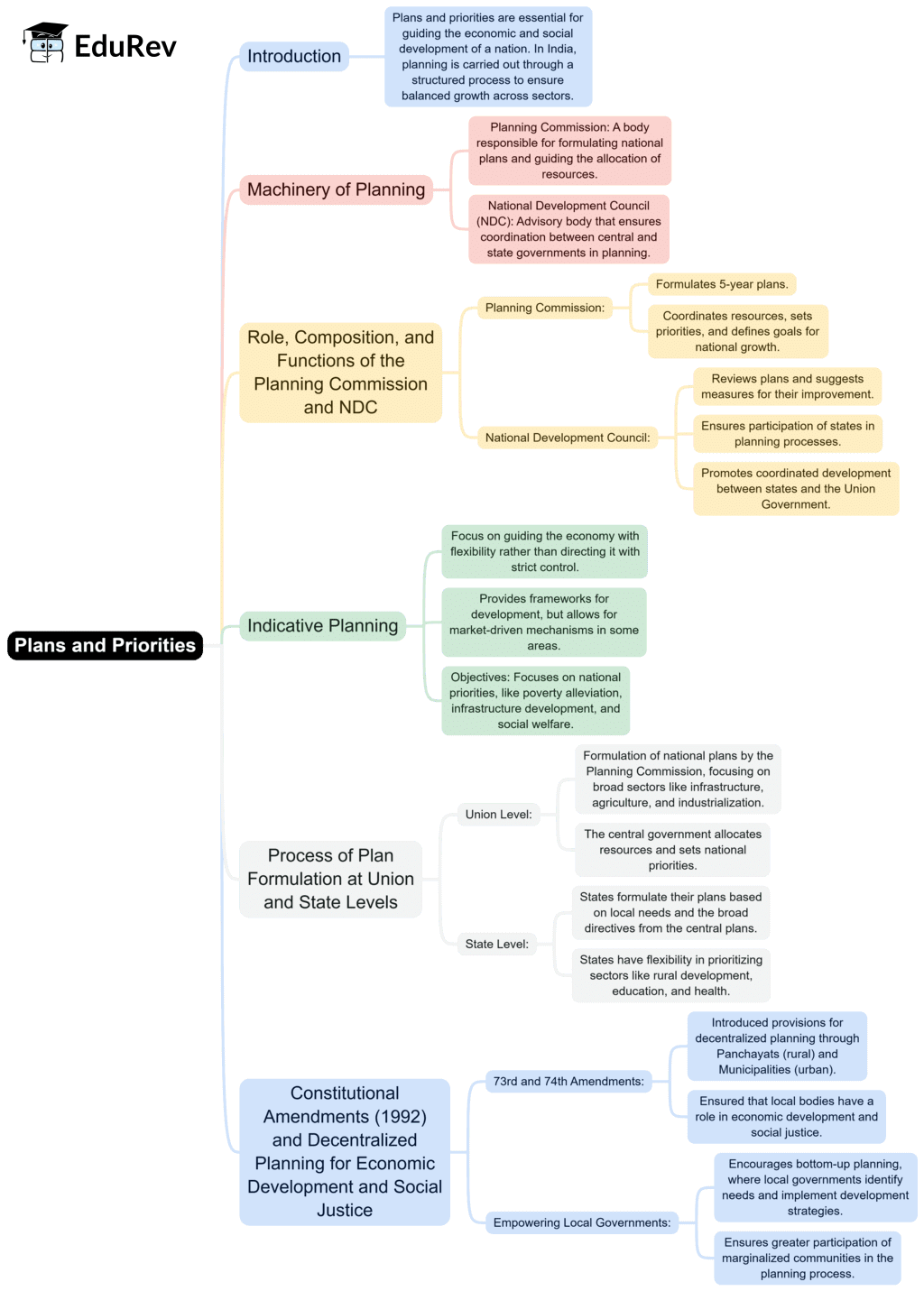UPSC Exam > UPSC Notes > Public Administration Optional for UPSC (Notes) > Mind Map: Plans and Priorities
Mind Map: Plans and Priorities | Public Administration Optional for UPSC (Notes) PDF Download

The document Mind Map: Plans and Priorities | Public Administration Optional for UPSC (Notes) is a part of the UPSC Course Public Administration Optional for UPSC (Notes).
All you need of UPSC at this link: UPSC
|
58 videos|242 docs
|
FAQs on Mind Map: Plans and Priorities - Public Administration Optional for UPSC (Notes)
| 1. What are the key components of a successful UPSC preparation plan? |  |
Ans.A successful UPSC preparation plan includes setting clear goals, creating a realistic timetable, selecting the right study materials, focusing on current affairs, and regularly revising topics. It is also important to include practice tests and mock exams to assess progress and identify areas of improvement.
| 2. How much time should one dedicate to UPSC preparation daily? |  |
Ans.The amount of time dedicated to UPSC preparation can vary based on individual circumstances. However, a general recommendation is to devote 6 to 8 hours daily to study, including time for reading, note-taking, and revision. Consistency is key, so maintaining a daily routine is vital for effective preparation.
| 3. What subjects are included in the UPSC Civil Services Examination? |  |
Ans.The UPSC Civil Services Examination consists of three stages: Preliminary, Mains, and Interview. The subjects included in the Preliminary exam are General Studies Paper I and II (CSAT). The Mains consists of nine papers, which include essays, general studies, optional subjects, and language papers. The subjects for General Studies cover a wide range, including history, geography, polity, economy, environment, and current affairs.
| 4. How important are current affairs in UPSC preparation? |  |
Ans.Current affairs are extremely important in UPSC preparation, particularly for the Preliminary exam and the General Studies papers in the Mains. Candidates should stay updated with national and international events, government policies, and significant developments in various fields. Regular reading of newspapers, magazines, and online resources is essential to strengthen this aspect of preparation.
| 5. What is the best way to approach revision for the UPSC exam? |  |
Ans.The best way to approach revision for the UPSC exam is to create a structured revision plan that includes regular review of all subjects. Utilize techniques such as summarizing notes, practicing previous years’ question papers, and taking mock tests. Active recall and spaced repetition are effective methods to enhance memory retention and ensure a deeper understanding of the material.
Related Searches





















